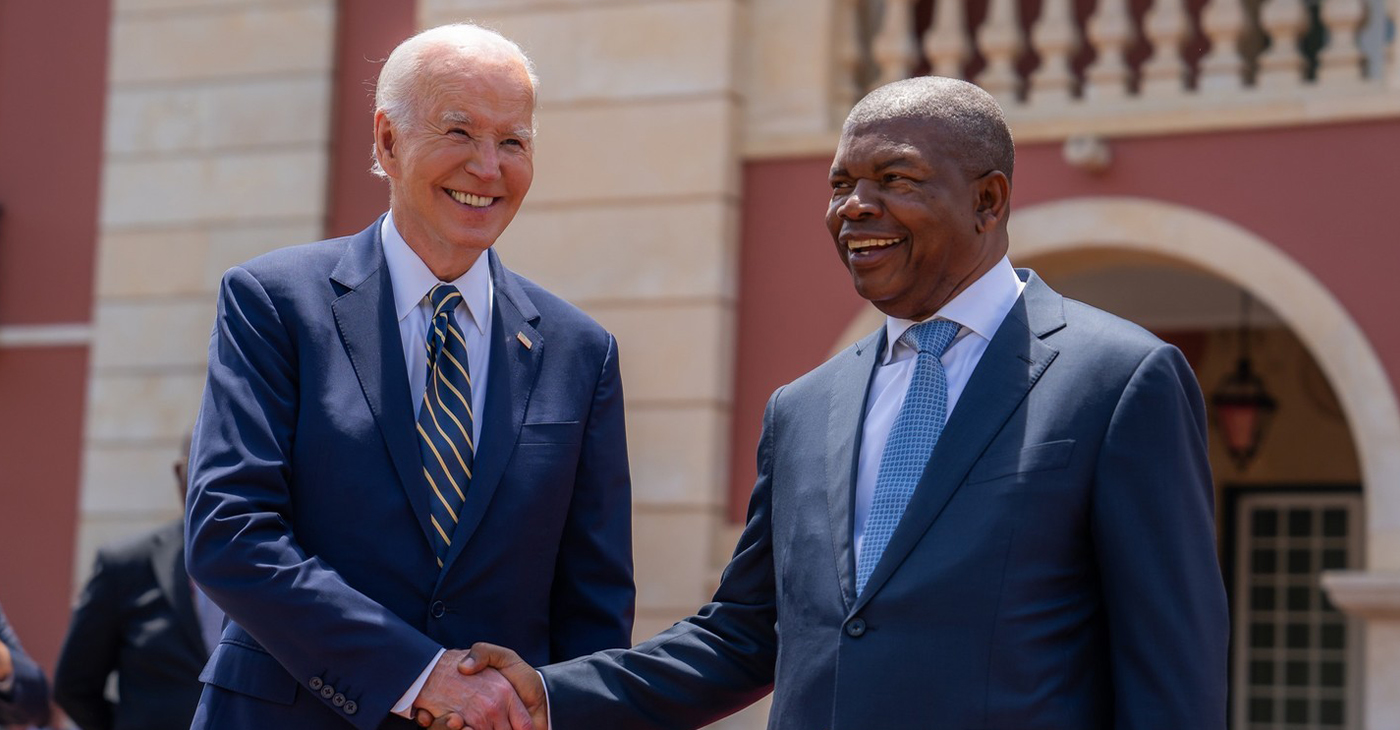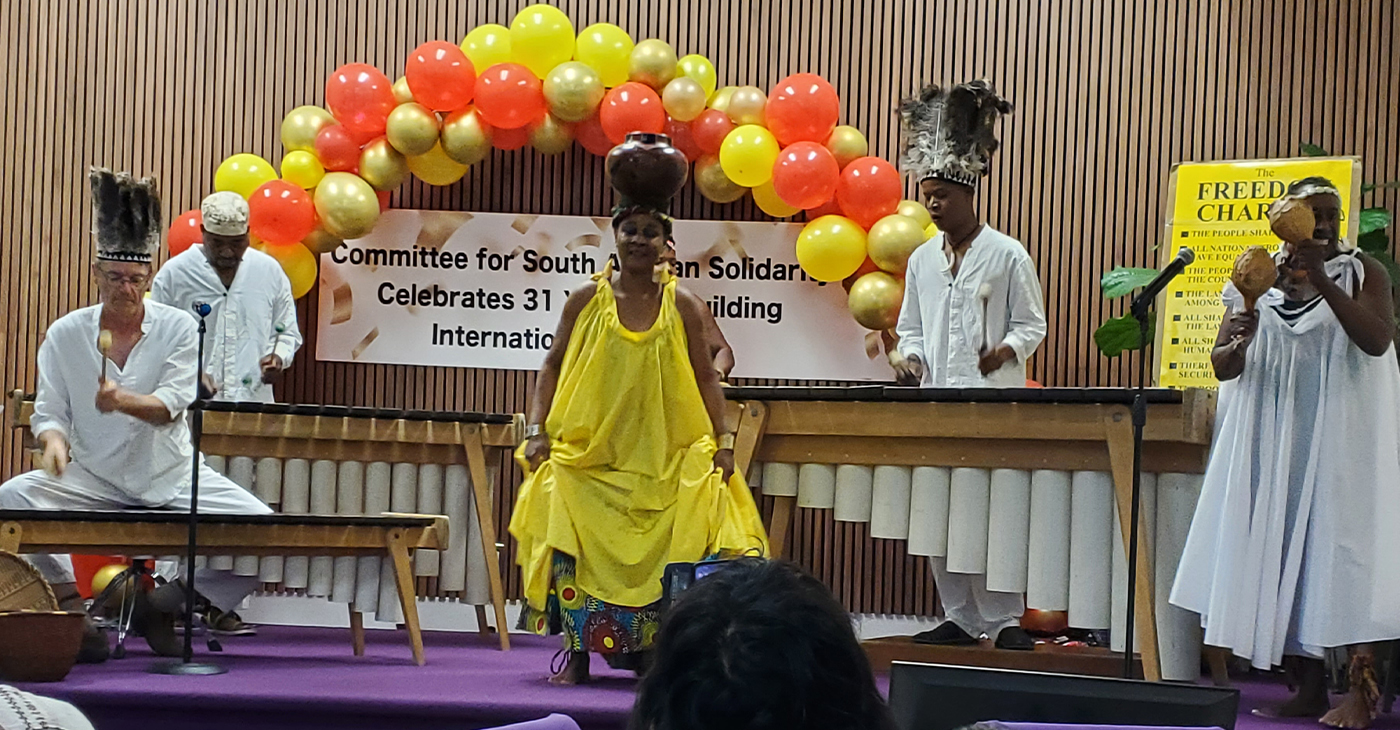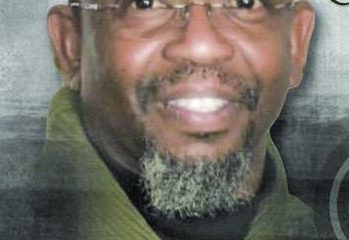World
Chelsea Fans in Paris Prevent Black Man from Boarding Train

PSG fans light flares during the Champions League round of 16 first leg soccer match between Paris Saint Germain and Chelsea at the Parc des Princes stadium in Paris, France, Tuesday, Feb. 17, 2015. (AP Photo/Christophe Ena)
JEROME PUGMIRE, AP Sports Writer
PARIS (AP) — With a racist song ringing in his ears, a black man trying to board a subway train in Paris stands back after twice being pushed away by a group of Chelsea soccer fans.
It happened Tuesday at Richelieu Drouout metro station, a short time before Chelsea played Paris Saint-Germain in the Champions League. On Wednesday, the Paris prosecutor’s office opened an investigation into racially-motivated violence on public transport.
In a video of the incident posted online by the Guardian newspaper, the man dressed in a long overcoat and with a bag hanging from his left shoulder tries to board the train and is pushed away. He then pushes back and says in French “Can I get on or what?” before again being shoved away.
A black woman walked away from the chanters moments later.
The carriage, mixed with Parisian commuters and English football fans making their way to the game, is packed. But there is enough standing space for one more person, as is evident when the man steps inside before being pushed away the first time.
The fans — some of whom chanted “Chelsea, Chelsea, Chelsea” — then sing “we’re racist, we’re racist, and that’s the way we like it.”
At about that time, several Paris transport officials walk past the group, but do not intervene, and the black woman leaves the adjacent carriage.
The identities of the men in the video, including the victim, have not yet been established, prosecutor’s office spokeswoman Agnes Thibault-Lecuivre told The Associated Press. The maximum penalty possible according to the French criminal code is three years in prison and a 45,000 euro ($51,000) fine.
Christiane Taubira, the French justice minister, referred to the video on the floor of the National Assembly on Wednesday, saying racism has no place in France.
London’s Metropolitan Police said it will examine the footage to see if any banning orders can be applied, and will assist French authorities to “identify the people involved.”
Chelsea, which has appealed for witnesses, said it would also take action — including banning orders — if possible.
“Such behavior is abhorrent and has no place in football or society,” the English club said in a statement. “We will support any criminal action against those involved.”
UEFA, the governing body of European soccer, said it could not take any action.
“We are appalled by the incident,” UEFA said in a statement. “However, as it occurred away from the stadium, it is outside UEFA’s remit to act.”
The incident in Paris happened the same day as former Italy coach Arrigo Sacchi was criticized for saying that “there are too many colored players” in the youth sides of Italian clubs.
FIFA President Sepp Blatter condemned those comments as well as the fans in Paris.
“Pride and dignity is not a question of skin colour. Shocked by Arrigo Sacchi’s comments. Stop it,” Blatter tweeted. “I also condemn the actions of a small group of Chelsea fans in Paris. There is no place for racism in football!”
Piara Powar, the executive director of Football Against Racism in Europe, believes football itself must do more to stamp out racism.
“There’s a whole range of people in prominent positions in football who are making out and out racist comments,” Powar said. “The comments by Arrigo Sacchi, and before Sacchi we’ve had Carlo Tavecchio, Willy Sagnol, Dave Whelan, Malky Mackay. We’ve had (Chelsea defender) John Terry, Luis Suarez.”
In the hours leading up to Tuesday’s match, a large group of rowdy Chelsea fans congregated around two bars in the Chatelet area in central Paris.
Plainclothes police escorted three separate groups of Chelsea fans to the underground station at Etienne Marcel. After a change of trains, the route to the Parc des Princes goes through Richelieu Drouout station, which is near a bustling shopping area close to the Paris Opera house.
The Parc des Princes is located in a well-to-do area of southwest Paris, a short walk from Roland Garros — home of the French Open — and its adjacent botanical garden.
The video was filmed by Paul Nolan, a British man living in Paris. He said the incident occurred at about 7:30 p.m. The match started at 8:45 p.m.
“People on board are British and they’re Chelsea fans,'” Nolan told BBC radio. “Before we heard the racist chants, there were some mentions of World War II.”
___
Associated Press writer Lori Hinnant contributed to this report.
Copyright 2015 The Associated Press. All rights reserved. This material may not be published, broadcast, rewritten or redistributed.
Activism
COMMENTARY: Will a Dictator’s Loss Change Trump’s Tune?
What’s happened in Syria has the potential of reshaping the politics of the entire Middle East. The U.S. can’t afford to sit back and do nothing. Now is the time to exert peaceful, diplomatic influence on how Syria maintains stability and goes forward with a new democracy.

By Emil Guillermo
In our polarized country, half of America can’t wait, while many of us still wonder, “where’s Kamala?”
I hope President-elect Trump — who famously said during the campaign that he’d be a dictator on day one — eats his words.
Dictators aren’t doing so well these days.
Last weekend, the dictator Bashar al-Assad was run out of Syria and sought exile with his puppet master/dictator Vladimir Putin of Russia. In just about two weeks, a coalition of rebels applied enough pressure to end a family regime in Syria that lasted 50 years.
al-Assad’s wealthy family dictatorship plundered Syria and ruled in terror.
It sounds all too familiar to Filipino Americans, many of whom came to the U.S. fleeing the Philippine dictator Ferdinand Marcos.
al-Assad’s end was different from the Filipinos who forged a peaceful People Power movement that chased the Marcos family to Hawaii where they sought refuge from their U.S. puppet handlers.
But as in Manila, there was cheering on the streets of Syria. Men, women, and children. Christian, Muslims, different sects and ethnicities, all united against al-Assad.
al-Assad has been described as a genocidal narco-trafficking tyrant, whose friends were America’s biggest enemies, Iran, Hezbollah, and Russia, said Mouaz Moustafa, the executive director of the Syrian Emergency Task Force, on CNN.
Moustafa said it was amazing that there would be no more Russian airstrikes, no more al-Assad gulags torturing civilians. “To see good triumph over evil is an amazing thing,” he added.
But last weekend has some trickle down.
Consider that we are talking about al-Assad, the one Tulsi Gabbard consorted with and hyped to her colleagues when she was in Congress. Now Assad has been shamed into exile with his puppet master Russia, and Gabbard wants to be the U.S. director of national security? Given her wrongheaded judgment on al-Assad, can she be trusted with any national secrets?
It’s still not over in Syria, as now there will be a scramble to see what kind of governing democracy emerges.
Predictably, Donald Trump has said, “The United States should have nothing to do with it. This is not our fight. Let it play out. Do not get involved.”
Nouveau isolationism?
What’s happened in Syria has the potential of reshaping the politics of the entire Middle East. The U.S. can’t afford to sit back and do nothing. Now is the time to exert peaceful, diplomatic influence on how Syria maintains stability and goes forward with a new democracy.
Overall, the ouster of the dictator should give Trump pause.
If by nominating MAGA loyalists like Gabbard, Pete Hegseth and Kash Patel, Trump’s testing the evolution to strongman rule in the U.S., he should consider what happened before last weekend.
In South Korea, a weak president tried to declare martial law and was voted down by Parliament. That’s a faux strongman.
Let’s hope Trump learns a lesson from the week’s news.
The next president sets the tone for a politics that’s already toxic.
He needs to remember the joy in Syria this week when an autocrat was dumped in the name of freedom and democracy.
About the Author
Emil Guillermo is an award-winning Bay Area journalist. His commentaries are on YouTube.com/@emilamok1. Or join him at www.patreon.com/emilamok
Black History
Biden acknowledged America’s ‘Original Sin of Slavery,’ Pledged Infrastructure Dollars and Long-Term Financial Aid
“Our people lie at the heart of a deep and profound connection that forever binds Africa and the United States together. We remember the stolen men and women and children who were brought to our shores in chains and subjected to unimaginable cruelty,” Biden said in remarks at the National Museum of Slavery, which is built near the chapel where enslaved individuals were forcibly baptized before being sent to America. The museum was built on the property of Álvaro de Carvalho Matoso, one of the largest slave traders on the African coast.

Will Biden’s aid for an above-the-ground Railroad help ease the pain for the African Americans’ Underground Railroad?
By Post Staff
And news dispatches from the Guardian, CNN and AP
When President Joe Biden went to Angola this week the purpose was ostensibly to advance the Lobito Corridor, an unfinished 800-mile railway project meant to facilitate the transfer of critical minerals from interior countries to western ports for exports.
But in a visit to the country’s slave museum, he acknowledged America’s dark past and its connection to Angola in the presence of three descendants of the first captives who arrived in Virginia from Angola in 1619.
The child of two of those captives — Antony and Isabella — was William Tucker, born around 1623. Three of his descendants were present when Biden spoke at the country’s slave museum and humbly acknowledged how the horrific history of slavery has connected the United States and Angola.
“While history can be hidden, it cannot and should not be erased. It should be faced. It’s our duty to face our history,” he said. “The good, the bad and the ugly. The whole truth. That’s what great nations do,” he said.
“It was the beginning of slavery in the United States. Cruel. Brutal. Dehumanizing. Our nation’s original sin. Original sin. One that’s haunted America and cast a long shadow ever since,” Biden spoke as he honored the Tucker family.
After introducing Wanda Tucker, Vincent Tucker and Carlita Tucker, he delivered a hopeful vision for the future in a major speech from the country that was the point of departure for millions of enslaved Africans.
(Wanda Tucker now serves as the faculty chair of psychology, philosophy and religious studies at Rio Salado College in Arizona.)
“Our people lie at the heart of a deep and profound connection that forever binds Africa and the United States together. We remember the stolen men and women and children who were brought to our shores in chains and subjected to unimaginable cruelty,” Biden said in remarks at the National Museum of Slavery, which is built near the chapel where enslaved individuals were forcibly baptized before being sent to America.
The museum was built on the property of Álvaro de Carvalho Matoso, one of the largest slave traders on the African coast.
Biden told the attendees that he’s proud to be the first president to visit Angola and that he’s “deeply optimistic” about the future relationship between the nation and the US.
“The story of Angola and the United States holds a lesson for the world. Two nations with a shared history, an evil of human bondage,” Biden said. “Two nations on the opposite sides of the Cold War, the defining struggle of the late part of the 20th century. And now, two nations standing shoulder to shoulder working together every day. It’s a reminder that no nation need be permanently the adversary of another.”
Biden’s trip aimed to highlight U.S. investments in Angola and the continent in the face of deepening Chinese influence in the region, as Beijing has poured hundreds of billions of dollars into Africa through its Belt and Road Initiative.
Biden took a swipe at China’s moves, without calling out the country by name, and argued the US presents a better alternative.
“The United States understands how we invest in Africa is as important as how much we invest,” Biden said.
“In too many places, 10 years after the so-called investment was made, workers are still coming home on a dirt road and without electricity, a village without a school, a city without a hospital, a country under crushing debt. We seek a better way, transparent, high standard, open access to investment that protects workers and the rule of law and the environment. It can be done and will be done,” the president said.
Biden’s speech comes during what likely could be his last trip abroad as president and as he seeks to deepen relationships with Angola and other African nations at a time when China has made significant inroads in the continent with hundreds of billions of dollars of infrastructure investments, far outpacing the U.S.
During his remarks, Biden touted U.S. efforts to expand its relationships across Africa, including billions of dollars in investments in Angola.
He also announced over $1 billion in new US humanitarian assistance for Africans who have been displaced by historic droughts across the continent.
“But we know African leaders and citizens are seeking more than just aid. You seek investment.
So, the United States is expanding its relationships all across Africa,” Biden said, adding later: “Moving from patrons to partners.”
Ahead of his remarks, the president also met with Angolan leaders, including young people at the museum.
Biden started his day with a bilateral meeting with Angolan President João Manuel Gonçalves Lourenço at the presidential palace in Luanda.
The two men discussed trade and infrastructure, including the US and Europe’s investment in the railroad. They also discussed mutual security interests as Angola has played a key mediating role in the conflict in the eastern Democratic Republic of the Congo.
In November, Angola announced their Incremental Production Decree of fiscal terms designed to enhance the commercial viability of developing oil and gas fields. The decree enhances the commercial viability of developing fields in mature blocks, underexplored areas and stranded resources, while encouraging exploration near existing infrastructure. The US Railroad infrastructure investments could play a major role in enabling increased recovery from producing fields and extending the lifespan of critical infrastructure, the decree is set to generate billions in offshore investments, create jobs and drive economic growth, solidifying Angola’s position as a leading oil and gas producer.
Activism
South African Solidarity Committee Hosts 31st Annual Celebration
“We’re all together for each other celebrating 31 years of building international solidarity between the people of the United States and South Africa toward the implementation of the 1955 Freedom Charter and 2030 Sustainable Development Goals,” said COSAS Operations Manager Nicole Richards.Located in Berkeley, COSAS is dedicated to the continuing struggle by the people of South Africa’s need for independence.

By Carla Thomas
The Committee of South African Solidarity (COSAS) celebrated its 31st anniversary on Saturday, Oct. 26 at the East Bay Church of Religious Science in Oakland.
Themed “Ubuntu,” a word in Zulu and Xhosa, which means “I am because we are,” the event brought together supporters and community members.
“We’re all together for each other celebrating 31 years of building international solidarity between the people of the United States and South Africa toward the implementation of the 1955 Freedom Charter and 2030 Sustainable Development Goals,” said COSAS Operations Manager Nicole Richards.
Located in Berkeley, COSAS is dedicated to the continuing struggle by the people of South Africa’s need for independence.
A soulful meal was prepared by Chef Rene Johnson and Blackberry Soul Catering along with live entertainment and speakers.
COSAS is an all-volunteer, private membership organization, made up of South Africans, Africans, students, professionals, clergy and others committed to building solidarity between the working people of the U.S. and the South African people still struggling for economic and political freedom.
Formed in 1993, the organization promotes the “real nature” of the changes and struggles taking place in South Africa and the African continent, according to Richards.
“COSAS counters ‘disinformation’ and ‘misinformation’ in the U.S. and Western mainstream media that creates division and distrust,” Richards said. “We produce the South African Beacon and organize and transport solidarity shipments of school supplies to South African grade schools requesting assistance,” Richards said.
According to organizers, COSAS is completely run by volunteers, free from the corporate and government agendas that continue to keep South Africa dependent on the West.
“We rely on the support of concerned individuals. Call us today about how you can get involved by sorting and packing supplies, donating office equipment, and supporting special events,” said Richards.
Earlier in the year, COSAS hosted its World Affairs film showing at Downs Memorial United Methodist Church. The screening featured a short film, “Feeding a Crisis: Africa’s Manufactured Hunger Pandemic,” exploring the hunger challenges African countries face and approaches to resolving the issues.
Contact the Committee for South African Solidarity, 1837 Alcatraz Ave., Berkeley, CA, 510-251-0998 for volunteer opportunities and event information.
-

 Activism4 weeks ago
Activism4 weeks agoOakland Post: Week of November 27 – December 3, 2024
-

 Activism2 weeks ago
Activism2 weeks agoButler, Lee Celebrate Passage of Bill to Honor Congresswoman Shirley Chisholm with Congressional Gold Medal
-

 Activism2 weeks ago
Activism2 weeks agoPost News Group to Host Second Town Hall on Racism, Hate Crimes
-

 Activism2 weeks ago
Activism2 weeks agoDelta Sigma Theta Alumnae Chapters Host World AIDS Day Event
-

 Business2 weeks ago
Business2 weeks agoLandlords Are Using AI to Raise Rents — And California Cities Are Leading the Pushback
-

 Arts and Culture1 week ago
Arts and Culture1 week agoPromise Marks Performs Songs of Etta James in One-Woman Show, “A Sunday Kind of Love” at the Black Repertory Theater in Berkeley
-

 Activism3 weeks ago
Activism3 weeks agoOakland Post: Week of December 4 – 10, 2024
-

 Activism2 weeks ago
Activism2 weeks agoOakland Post: Week of December 11 – 17, 2024





























































